Home
Use our global calendar of privacy events to locate an event near you.
FILTER BY
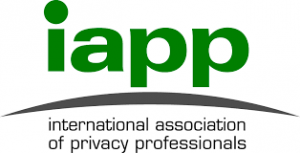
The Call for Speakers is Open
Europe’s premier data protection conference meets in Brussels in 2017, and we’re seeking engaging speakers to share their expertise—and, of course, delight and enlighten delegates.
The Congress delivers policy debate, strategic thinking and thought-provoking discussion. Exceptional education is critical to our mission. Are you ready to step up and share your knowledge? Can you engage an audience? Are you excited to get more involved in the privacy community?
Now is your chance to submit a session proposal!
Deadline: 19 March
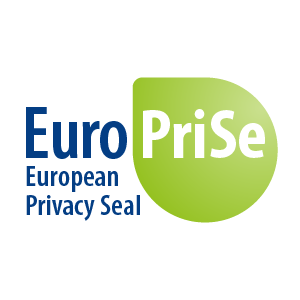
The 2-day workshop will introduce you to the EuroPriSe certification scheme: You will learn about EuroPriSe criteria and procedures and train how to specify a target of evaluation (ToE) and to write a EuroPriSe evaluation report. In addition, you will start to work on the training evaluation which is one important precondition for being admitted as EuroPriSe Expert.
The workshop is a combination of classroom and group work and involves practical examples. You will deal with privacy use cases to apply what you have learned and to benefit from the professional exchange with other workshop participants.
During the workshop, the experienced speakers will introduce you to EuroPriSe’s GDPR ready certification criteria for IT products and IT based services and provide you with an overview of EuroPriSe’s strategy regarding the GDPR.
Enjoy meeting other privacy professionals from around the globe and expand your professional network!
Note: Please study the requirements for expert admission thoroughly prior to registering to our workshop.
An early bird discount is available until June 30, 2017.
Enjoy an additional day of training!
Participants of the two-day EuroPriSe Expert Admission Workshop may participate free of charge in the one-day Expert Enhancement Workshop which takes place the very next day. Meet experienced EuroPriSe Experts and benefit from additional insight in EuroPriSe and EU data protection law!
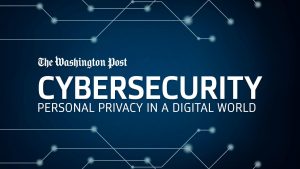
Cybercrimes are estimated to be costing American businesses over half a billion dollars a year and with security breaches regularly threatening the personal and financial information of broad swaths of the American public, the problem seems to be getting worse.
On November 8, 2017, The Washington Post will bring together business executives, leading cybersecurity experts, privacy advocates and others to discuss detection and prevention strategies for individuals and corporations. These experts will examine the current and future cyber threat landscape and the solutions that could help consumers cope with this urgent problem.
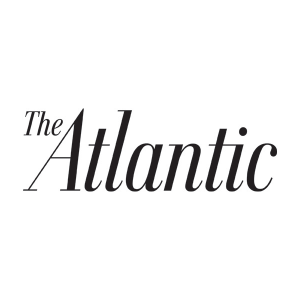
The Internet of Things (IoT) is changing the way companies and individuals operate. With the touch of a button or a flick of the wrist, consumers can pay for products on-the-go, control home climate systems and track health data in real time. From devices to cars to entire cities, “things” are becoming smarter and more connected.
In a series of conversations, The Atlantic will bring together leading stakeholders across industries including technology, higher education and government to explore the impact of advancements in IoT. What challenges do cities and companies face in building digital infrastructure to support new technologies? How will new innovations affect the consumer experience? What will it take to ensure security and reliability in a vulnerable cyber world?

When you use a smart gadget or give your data to the cloud, how do you know it’s trustworthy? In an era where our home appliances have joined the Internet of Things and our every action is being analyzed by an artificial intelligence, what role does design play in making sure these devices behave ethically? Join designers, hackers, makers, and thinkers in considering this and other issues at the intersection of design and trust. This year Underexposed features an evening salon, which is open to the public, in addition to a day-long invitational workshop.
Salon panelists include
*Sarah Gold: Trust and Design*
Sarah is a designer interested in privacy, security and networks in the public domain. She founded IF in 2015 to work on ambitious projects involving accountability, machine learning and digital rights. A NESTA New Radical and Forbes 30 under 30 awardee, Sarah sits on the practitioner panel for the Research Institute in the Science of Cyber Security.The salon is co-hosted by IF and is the latest instalment of their Trust & Design meet up series. Sarah will be talking about their work building tools to help teams make better decisions about consent.
*Cennydd Bowles: The Shadows of Data*
Cennydd is a London-based designer and writer focusing on the ethics of future technologies. He has worked with companies including Twitter, Samsung, and the BBC, and is a popular speaker at technology and design events worldwide. His second book ‘Future Ethics’ will be released in 2018. The Shadows of Data: The data-driven economy is here to stay. Datafication is in the ideological ascendancy, and the promises of an artificially intelligent world will require us to share our intimate secrets. Algorithmic decisions will increasingly be tied to our data shadows. In a landscape of black-box obfuscation, diminished user agency, and diluted moral responsibility, can designers be sure they are empowering rather than disenfranchising?*Tijmen Schep: Social Cooling – Communicating the Why of Privacy Design*
Tijmen is a technology critic and privacy designer. As a critic he works on the question of how to increase audience demand for privacy enhancing technologies, which has become focused on the concept of “social cooling”, the data version of global warming. As a privacy designer he explores cloudless alternatives to popular smart products. His book Design My Privacy is used by design schools across the Netherlands. He also helped found the critical “ubicomp design” course at the Amsterdam University of Applied Sciences, and through the SETUP medialab was a driving force behind several humorous design fictions that explore the darker side of the internet of things.Co-hosted by IF as part of their Trust & Design meetup series.
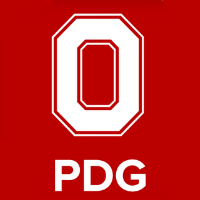
| The projected benefits of data science and the paradigm of big data are not compatible with privacy focused regulation of information collection. Or… so goes a compelling and popular argument. However, not only does this argument play suspiciously well with the dominant business model of the commercial information industry, but it relies on misconceptions and ambiguities of key terms. There is no denying that data science poses genuine and unprecedented challenges to privacy, but abandoning regulation of information collection in favor of use regulation will undermine a cornerstone of individual freedom.
Helen Nissenbaum, Professor of Information Science at Cornell Tech, will unravel the debate between those who continue to see continued value in protecting privacy and those who would forgo privacy in favor of use regulation of data analytics instead. The event will take place on Thursday, Nov. 9, in a distinguished lecture hosted by The Ohio State University Moritz College of Law titled “Must Privacy Give Way to Use Regulation?” Professor Neil Richards of the Washington University in St. Louis Law School, an internationally-recognized expert in privacy law, information law, and freedom of expression, will comment on Nissenbaum’s lecture and engage her in dialogue. Following the lecture, the audience is invited to a public reception with Professors Nissenbaum and Richards. With generous support from the law firm of Sidley Austin LLP, the Moritz College of Law Program on Data and Governance presents this distinguished lecture annually. We invite you to join us and be a part of the conversation. |
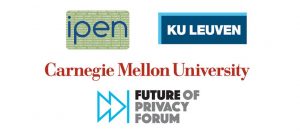
A multidisciplinary research approach to understanding privacy is needed and deploying new privacy-aware approaches may require changes in existing technology systems, in business processes, in regulations, and in laws, as stated in the US National Privacy Research Strategy. When the EU’s GDPR becomes fully applicable on 25 May 2018, many data protection requirements will be seen in a new perspective. Among other aspects, “data protection by design and by default” will become an explicit legal obligation. Organizations who are processing personal data have to apply privacy engineering so that their systems implement data protection principles and integrate the necessary safeguards.
With this event, we aim to determine the relevant state of the art in privacy engineering; in particular, we will focus on those areas where the “art” needs to be developed further. The goal of this trans-Atlantic initiative is to identify open research and development tasks, which are needed to make the full achievement of the GDPR’s ambitions possible.
Format for the event:
- Review the state of the art – including current solutions
- Discuss current research in the field
- Break-out Sessions – participants will focus on “key challenges” and identify challenges for research and development
- All participants will discuss the outcomes of the break-out sessions and suggest next steps at the conclusion of the Workshop.
Who should attend:
- Privacy Engineering Researchers
- Privacy Engineers
- Practitioners responsible for data governance and protection
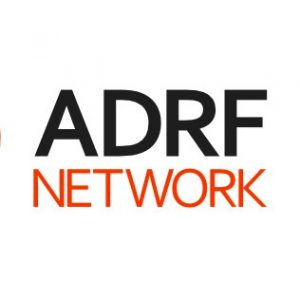
As surveys continue to experience declining response rates and incur rising costs, the research community from government, business, and academia have been turning to administrative data as a powerful supplement. However, standards for accessing and using administrative data for research purposes are currently not well established in the US.
Join the Administrative Data Research Facilities (ADRF) Network, a newly formed collective of professionals, at our inaugural conference to share approaches and foster collaborative opportunities in advancing this emerging field.
The conference will kick off Monday afternoon with a colloquium on trust, transparency, and privacy. Tuesday will feature a full day of panels on topics of data access, data sharing, and the science of administrative data research.
Please visit www.adrfconference.org for the most up-to-date program. Registration closes November 8, 2017.
This event is co-convened by the Office of the Provost at Georgetown University and Actionable Intelligence for Social Policy at the University of Pennsylvania and is sponsored by the Alfred P. Sloan Foundation.
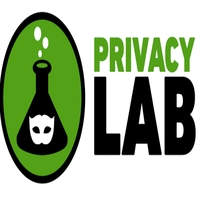
Speaker: *Jay Freeman*Topic:
*That’s How You Get a Dystopia*
Apple/Samsung owns your phone. Google/Facebook owns your data.
Amazon/Microsoft owns your network. It seems we are no longer able to
conceptualize technology without deciding “who owns it?”. Do you want a
dystopia? Because that’s how you get a dystopia.When you hear about tradeoffs related to freedom, privacy, security, or
even simply quality, too often the discussion is highly theoretical and we
lose people to arguments over “well, that will never happen”. In fact,
there have been enough concrete and documented failures–places where the
software development community has accidentally enabled discrimination or
even directly been forced to support oppressive regimes–that we can learn
quite a bit even limiting ourselves to only what we can glean from major
news headlines.Attendees of this talk will hopefully obtain a new appreciation of just how
important it is to design decentralized and federated protocols, even when
ostensibly building systems that are “secure, yet centralized” (such as
Signal and even Tor), culminating in a description of Orchid, a
just-announced open-source platform that takes direct aim at Internet
surveillance.Bio:
Jay Freeman, widely known online as “saurik”, is the developer of Cydia,
the alternative to the App Store used on jailbroken iPhones, iPads, and the
iPod touch. Substrate, the platform he provides developers to alter the
behavior of running programs by way of runtime in-memory patching, has been
used by many thousands of developers and deployed to tens of millions of
users.Jay’s largely-academic background is in networking, static analysis, and
programming languages, which have resulted in nmap+V (which brought “what
version of what software is running on the remote computer?” to nmap in
2000), Exemplar/Anakrino (the first decompiler for .NET, released in 2001
while .NET was still only available to beta testers), and Cycript (a hybrid
of Objective-C and JavaScript that is often used to explore the behavior of
running programs).In 2017, along with Brian Fox, Gustav Simonsson, Stephen Bell, and Steve
Waterhouse, Jay co-founded Orchid, a new peer-to-peer protocol and
associated organization with a goal of ensuring surveillance-free access to
the Internet for everyone, everywhere. Orchid combines monetary incentives
(using a cryptocurrency) with design decisions that give users a feeling of
“control” over their Internet connection with a fully-decentralized
protocol to build a secure market for bandwidth.For more information about Privacy Lab, visit
https://wiki.mozilla.org/Privacy/Privacy_Lab
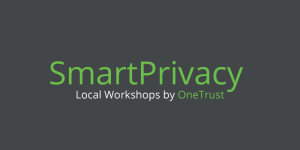
SmartPrivacy is a practitioner-focused, half day local workshop where privacy professionals can learn from each other about tools and best practices to operationalize their privacy programs. The workshop is hosted by OneTrust, however, is open to any privacy professional regardless of tool or template of choice.
A combination or structured educational sessions, peer-lead discussions, and networking allow organizations to share practical tips on topics such as GDPR compliance, how to perform a data inventory, identifying the key stakeholders/privacy champions within your organization, and how to get buy-in from executives.Attendees can expect to receive 4.5 CPE credit hours, the ultimate PIA/DPIA, Data Inventory & Mapping, and Data Subject Rights Handbooks, access to free software tools, how-to guides, and best practices documents on the topics covered.
Workshop Agenda
• 11:30am Lunch & Registration
• 12:00pm Welcome & Introductions
• 12:30pm PIA & DPIA Workshop
• 2:15pm Data Mapping Workshop
• 3:30pm Data Subject Rights Workshop
• 4:00pm OneTrust Demo
• 4:30pm Networking & Cocktails
